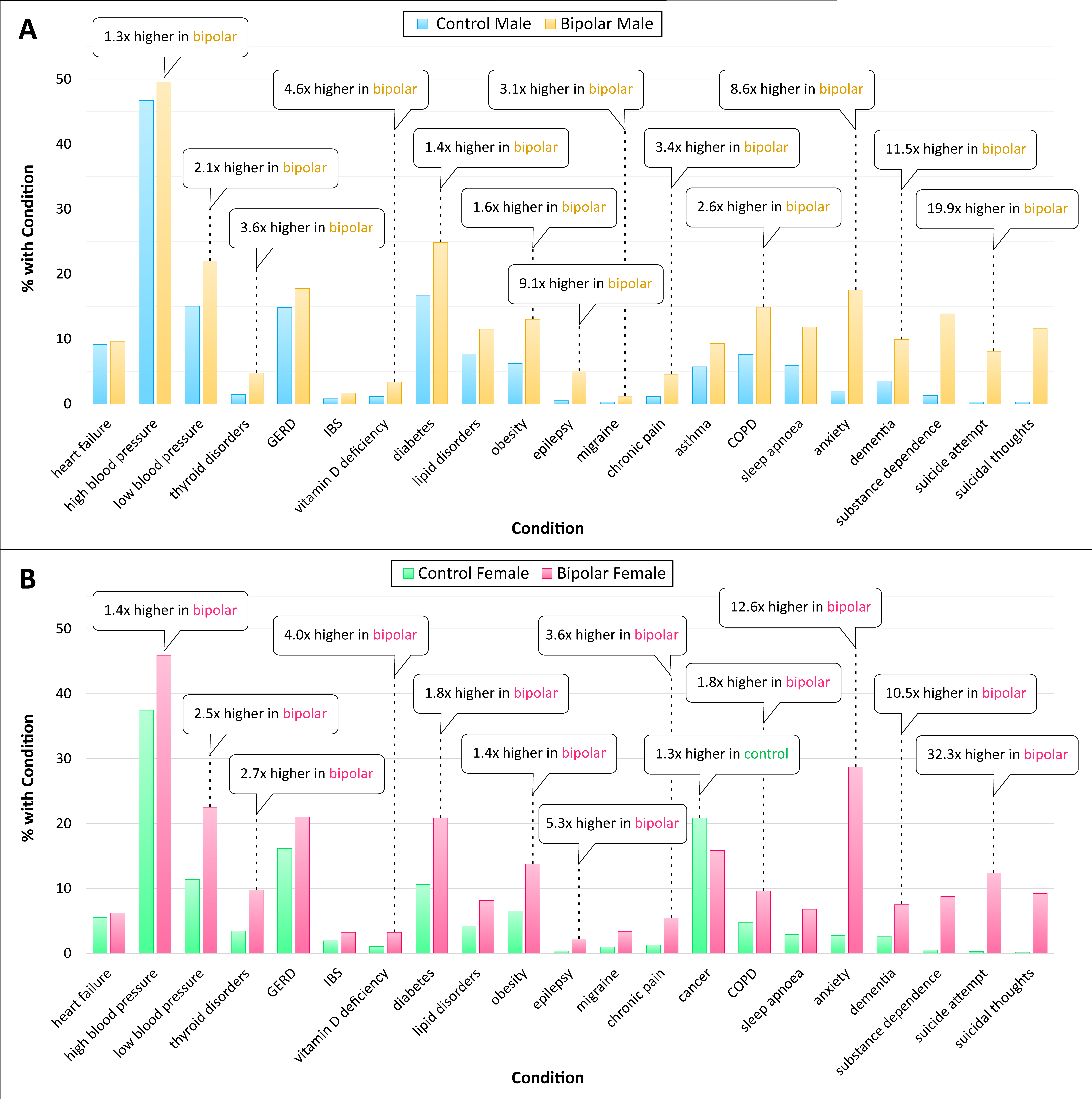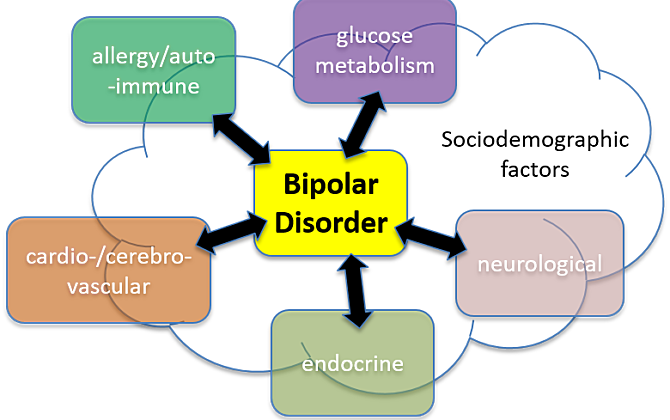Jump to
While the symptoms of bipolar disorder have been well documented, individual bipolar patients may experience unique combinations of symptoms, which can also change throughout the course of their lives. At present, the specific biological mechanisms that increase a persons’ risk of developing bipolar disorder are yet to be fully understood. In addition, the specific genes that influence disease severity and response to treatment remain largely obscure, and are the focus of this important study.
This project will bring together researchers from UNSW Centre for Big Data Research in Health, UNSW Psychiatry & Mental Health, the Prince of Wales Hospital and the Sax Institute, with support from the NSW Ministry of Health. The Sax Institute’s“45 and Up” Study is an exceptionally powerful resource of over 267,000 men and women across NSW, from which we intend to recruit and obtain blood samples from ~1,200 individual participants.
This study will derive biomarkers from the blood samples collected, including whole genome sequencing to be performed at the Kinghorn Centre for Clinical Genomics at the Garvan Institute. This project seeks to address key knowledge gaps, with potential for gene discovery, improving our understanding of the causes of this complex and highly heritable mental health condition.
For people who are diagnosed with bipolar disorder, finding the right medications that effectively manage their symptoms can be a long and challenging process. Lithium is the first-line treatment for bipolar disorder, but only 30% of individuals receiving lithium experience full alleviation of their symptoms, leaving the majority of patients to undergo serial trails of other medicines, either in combination or as stand-alone treatments, in the pursuit of stable moods. In order to minimise the time to successful treatment, this project seeks to identify genomic signatures that are associated with positive response to specific medicines.
In a clinical setting, such signatures could be used by a doctor to guide accurate medication selection, resulting in shorter times to effective treatment.
In addition to psychological and mood symptoms, bipolar disorder is associated with increased rates of physical illness when compared to the general population. Investigations undertaken in this project using linked public hospital admission data have shown higher rates of physical and psychological illness in bipolar patients, across more than 20 discrete medical conditions, including cardiovascular and respiratory illnesses, diabetes, and dementia (unpublished).
While these findings represent a key research milestone, this study now seeks to identify the mechanisms that link bipolar disorder and physical illness.
This information could be used to inform the design of more wholistic treatment strategies in future, reducing the substantial chronic medical burden that is associated with a diagnosis of bipolar disorder, to improve quality and quantity of life.

People with bipolar disorder have a reduced life expectancy compared to the general population, and on average, die about 8 to 10 years earlier. This may be partially explained by the higher rates of physical illness, as well as the high rates of suicidal thoughts and behaviors, in people with bipolar disorder.
Findings from this project have shown that people with bipolar disorder die more frequently than the general population from cardiovascular disease, diabetes and suicide.
It is hoped that future strategies for more effective and targeted treatment of physical illness in bipolar disorder may help to close this unacceptable mortality gap.
This project involves participants from The Sax Institute’s 45 and Up Study.
The 45 and Up Study is a powerful resource of over 267,000 residents of New South Wales (NSW), aged 45 years and over at baseline (2006−2009), who were randomly sampled from the Department of Human Services enrolment database, with over sampling of rural areas. Demographic and general health information was collected at baseline by means of a self-report questionnaire. Data linkage by the Centre for Health Record Linkage (CheReL) includes over 157 million service-records from 2001 – 2020, sourced from NSW Health’s Mental Health, Emergency Department, and Admitted Patient Data Collections, as well as death registrations and cause of death data, plus Pharmaceutical Benefits Scheme (PBS) and Medicare Benefits Schedule (MBS) data supplied by the Department of Human Services and linked by the Sax Institute.
To explore the genetic mechanisms of bipolar disorder, treatment response and comorbid physical illness, potentially eligible participants from the Sax Institute’s 45 and Up Study have been invited to provide a blood sample for biomarker analysis and/or genetic testing. Blood samples and their derivatives will be stored securely at the NSW Health Statewide Biobank and NeuRA, with sequencing to be performed at the Kinghorn Centre for Clinical Genomics. Additional demographic and clinical information will also be obtained from consenting participants by means of a self-report questionnaire.
If you have received a letter inviting you to participate in this study, we very much appreciate your valuable time in reviewing the participant information materials. If you would like to participate, please return your signed consent form and completed questionnaire in the provided postage paid envelope, and then provide a blood sample by attending one of the NSW Health Pathology Collection Centres listed on your invitation letter, taking with you the invitation letter, pathology request form and sticker labels.
Further information for participants may be found on the Sax Institute’s website at https://www.saxinstitute.org.au/solutions/45-and-up-study/for-participants/neura-project/
If you would like more information about this project, and what it means to donate your blood sample to the biobank regarding this research project, please call the 45 and Up Study Infoline on 1300 45 11 45 or email email hidden; JavaScript is required
If you would like more information about the NSW Health Statewide Biobank, or your potential participation in the NSW Health supported Strategic Collection, please call 02 4920 4140 or email email hidden; JavaScript is required
If you need to contact the NeuRA research team, please phone (02) 9399 1166 and leave a voice message, or email questions or concerns to email hidden; JavaScript is required
